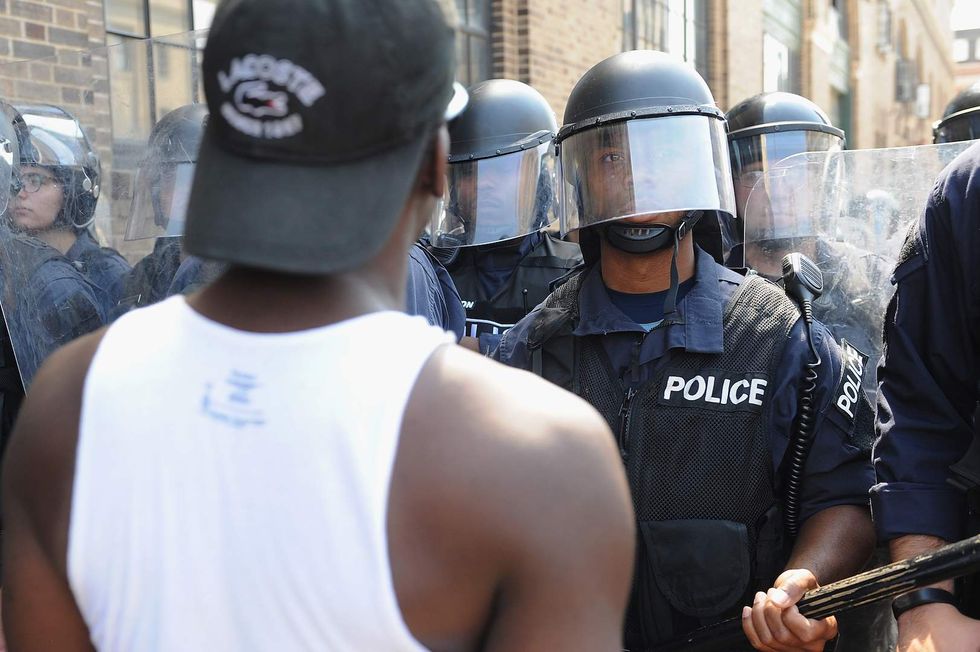
An FBI report revealed that the agency is monitoring Black Identity Extremism for potential targeted acts of violence against police. (Michael B. Thomas/Getty Images)

Foreign Policy obtained a copy of an FBI report titled "Black Identity Extremists Likely Motivated to Target Law Enforcement Officers" dated Aug. 3, 2017. The report can be viewed in full here.
The purpose of the report was to assess the threat posed by Black Identity Extremists (BIEs): black people who may carry out targeted, premeditated violent attacks against police in response to incidents of real or perceived excessive police violence against black people.
The FBI defended the report, maintaining that investigations still cannot be initiated "based solely on an individual’s race, ethnicity, national origin, religion, or the exercise of First Amendment rights."
“Domestic terrorism groups differ from traditional criminal groups in that they take action for a different purpose, to bring attention to a social or political cause,” the FBI wrote in a statement to Foreign Policy. “Therefore, their existence as a group has a legitimate purpose, at least in part. Their legitimate activity may include acts of protest, advocacy, and civil disobedience.”
It could lead to racial discrimination and targeting. “They are grouping together Black Panthers, black nationalists, and Washitaw Nation,” said a former homeland security official. “Imagine lumping together white nationals, white supremacists, militias, neo-Nazis, and calling it ‘white identity extremists.’ The race card is being played here deliberately."
The report goes out of its way to lump together groups that aren't necessarily related. “Security agencies want to perceive a threat that is political, a threat that is ideological,” said David Garrow, who won a Pulitzer Prize for a biography of Martin Luther King Jr. “But what we’re actually witnessing is men, almost entirely men, acting out in violent criminal ways and grasping at some chimera of political justification.”
It brings to mind past FBI abuses, particularly those targeting black people. “It’s classic Hoover-style labeling with little bit of maliciousness and euphemism wrapped up together,” said William Maxwell, a Washington University professor who has researched the FBI's monitoring of black writers in the 20th century. “The language — black identity extremist — strikes me as weird and really a continuation of the worst of Hoover’s past.”
(H/T Foreign Policy)